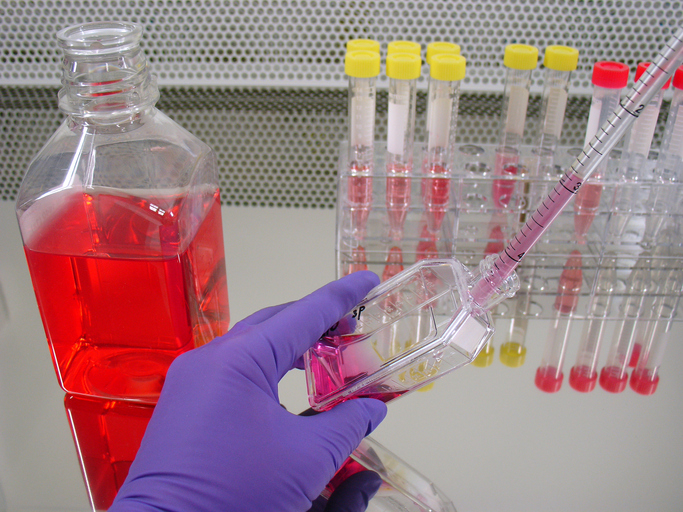Culture media and supplement formulations are designed to modulate production stress and thus improve the viability and productivity of cells that are used as therapies or used to produce therapeutic proteins. Those approaches, however, aren’t necessarily specific to the cells and proteins being used.
“We really need more custom solutions that are tailored to both the cell type and to the actual product,” Rebecca C. Vaught, PhD, CEO and founder of Van Heron Labs, tells GEN. The company just received $1.1 million in seed round funding led by FoodLabs, which invests in food and biotech ventures. “Genetics, metabolism, and nutrients are in a three-way relationship,” says Vaught.
To optimize those relationships, Van Heron Labs’ technology, called ai.VHL, “uses genetic patterns to give us metabolic information about the cells, and create nutrient and culture media formulations [both exact nutrients and their ratios] that complement cell metabolic needs. “By harnessing transcriptomic information, we’re able to capture the exact stress for a specific cell type producing a specific therapeutic of interest.
“That means our formulations are exactly tailored to the metabolic challenge that cell type is going through,” Vaught says. Then, “Because the cells are healthier, they can divert fewer resources to survival and homeostasis, and more into folding or post-translational modifications, for example.”
Van Heron Labs typically begins working with biomanufacturers when they identify a problem—lower than expected titer, for instance. Vaught’s team works with the biomanufacturers to determine the best way to collect genetic–primarily RNA sequencing—information from the cells either at the point of the bioprocessing bottleneck or at various times points within the bioprocess. Then the lab develops custom supplements to address those challenges.
Optimal proliferation
“The result is optimal proliferation, higher viability outcomes and, specifically for stem or immune cells, less off-target differentiation so you have more of the target cells you need,” according to Vaught.
For example, compared to industry standards, she says, “For a mammalian lung cell line used in COVID-19 research, custom ai.VHL formulations increased proliferation by 300 to 900 percent…and viability by 40 percent. For primary human T-cells, ai.VHL formulations increased cell proliferation by up to 80%, decreased activation-induced cell death by up to 45%, and enhanced expression of activation markers (CD8+, CD69, CD25, CD4+, and CD25) by up to 200 percent, with potentially minimal implications for cell exhaustion over a 10-day culture process.”
When applied to collagen production, ai.VHL increased the specific productivity of microbial producer cells by 365 percent, she continues.
“Many promising therapies can’t come to market because of manufacturability issues,” Vaught points out. “We hope to eliminate those constraints and help new technology reach end-users or patients in the best, fastest, and least expensive way possible.”
Since Van Heron Labs’ inception in 2020, the company has worked with several commercial customers to improve cell health and function and, thus, the bioproduction process itself.


